26 Benefits Of Coconut Oil, Types, How To Include In Your Diet
Facts, uses, merits, demerits, myths, and more — know all about this commonly used oil.
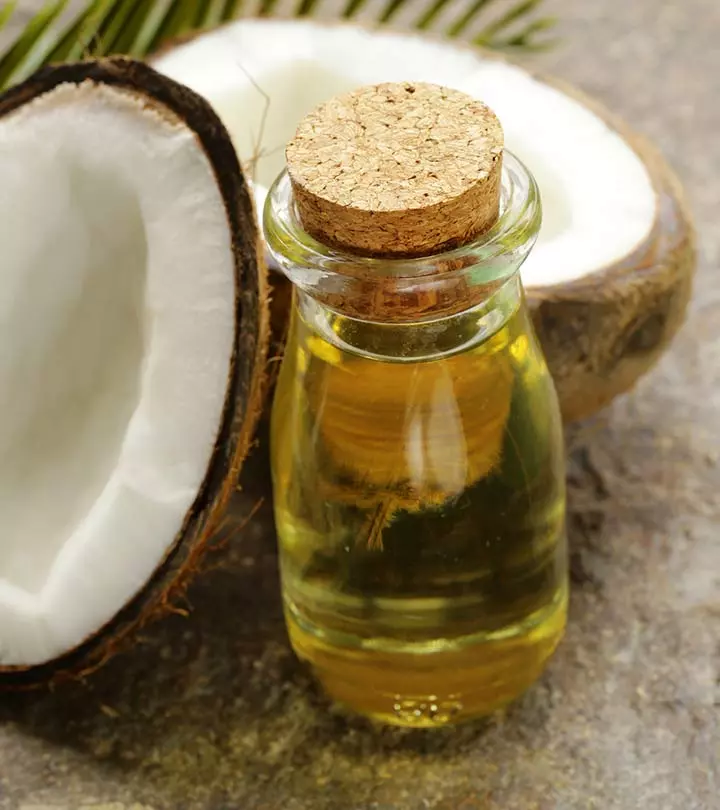
Image: Istock
Coconut oil is regarded as a wonder oil by our mothers and grandmothers, and its usage was regular for various purposes. It is because they recognized coconut oil’s benefits and valued it as a regular addition to the daily routines. Coconut oil is widely used for various purposes, including cooking, hair and skin care, and more.
The research now supports the benefits of coconut oil. But unfortunately, very little is known about this wonderful oil for many of us.
Want to know more about coconut oil and the array of benefits it offers, how to use it, and common myths about its usage?
Scroll down to know from the article below.
 Know Your Ingredient: Coconut Oil
Know Your Ingredient: Coconut OilWhat Is It?
A thin, clear, slightly dense liquid extracted from the wick, meat, and milk of the coconut palm fruit.
What Are Its Benefits?
It aids digestion and weight loss, reduces seizures, maintains cardiovascular, skin, and hair health, boosts immunity, and fights against viral, bacterial, and fungal infections.
Who Can Use It?
Coconut oil has so many health benefits that it can be consumed by all. People with dry skin will find its topical application beneficial.
How Often?
For cooking, do not use coconut oil daily. You can topically use coconut oil daily if you have dry skin or hair.
Caution
Avoid applying coconut oil if you have oily or acne-prone skin, and make sure to consume it in moderation.
In This Article
Coconut Oil – What We Must Know
What is more important than knowing the benefits of a particular ingredient? It is knowing about the particular ingredient itself.
Coming to the point – coconut oil (also known as copra oil), is an edible oil that is extracted from the kernel of mature coconuts harvested from the coconut tree. Pure coconut oil (also called virgin coconut oil) contains about 92 percent saturated fat, which is one of the highest compositions amongst foods and oils containing saturated fats (1)(2),(3).
Just like any fat, coconut oil too is a blend of fatty acids. Lauric and myristic acids are the two major fatty acids present in the oil (44 percent of lauric acid and 16.8 percent of myristic acid), which are responsible for most of the benefits the oil provides.
Extra virgin coconut oil is extracted from fresh matured coconuts. As per USDA National Nutrient Database, one tablespoon of coconut oil contains the following:
- 117 calories
- 0 grams of protein
- 13.6 grams of fat (11.8 saturated, 0.8 monounsaturated and 0.2 polyunsaturated)
- 0 grams of carbohydrate
It contains medium chain triglycerides (MCT), lauric acid that is rich in anti-oxidants and is also found in breast milk. It helps the body in absorbing other minerals and nutrients. Another important benefit is that it contains zero cholesterol. The presence of MCTs also makes the oil resistant to high heat and the oil does not break down and doesn’t release toxins when used for frying and cooking.
 Trivia
TriviaKey Takeaways
- The lauric acid in coconut oil has antimicrobial properties. But it does not harm the useful gut bacteria.
- It increases the good cholesterol level and aids in weight loss.
- It is rich in medium-chain triglycerides, which improves absorption, regulates blood sugar level, and prevents fat accumulation.
- Due to its high moisturizing capacity, coconut oil is used as lip balm, in hair masks, sunscreen, and for several other purposes for skin and hair care.
- Virgin or extra virgin coconut oil is mostly recommended due to the concentrated composition of saturated fatty acids.
Some Facts About Coconut Oil
- Earlier, coconut oil had been criticized a lot because some scientists wrongly promoted it as an oil that increases LDL cholesterol. However, recent findings suggest otherwise and say that coconut oil does not increase LDL cholesterol. It is rather responsible for increasing the good-HDL cholesterol. Since this difference never properly reached the masses, even today, many misconceptions regarding this oil prevail.
- 50% of the fat present in the coconut oil is of a rare kind, and is known as lauric acid (4). The human body converts the lauric acid into monolaurin, which is rich in antibacterial, antiviral and antiprotozoal properties. Lauric acid is the most powerful destroyer of gram-negative bacteria and virus, and coconut oil is the major source of this acid on earth.
- Coconut oil directly affects by
suppressing the inflammation and repairing the damaged tissues in the body. It also contributes by restricting the harmful intestinal microorganisms that lead to chronic inflammation.
The monoglycerides and the medium-chain fatty acids present in the coconut oil are similar to those in the milk of the mother.
These acids carry extraordinary antimicrobial and anti-inflammatory properties and disrupt the lipid structure of the microbes, thereby causing their deactivation. Though coconut eliminates the negative bacteria, it does not affect the gut bacteria that is good for health.
All the above facts prove that the consumption of coconut oil is good for health and can help reduce the symptoms of hypothyroidismi A disorder in which the thyroid gland does not generate adequate thyroid hormone and affects metabolism, heart rate, and body temperature. , such as inflammation, joint pain, fatigue and weight gain.
Coconut Oil Benefits
If you haven’t started using coconut oil yet, you will once you get to know the benefits this humble oil offers!
1. Aids Weight Loss
This is probably something almost every living adult in today’s world would crave for. Oh yes, who doesn’t want to lose that excess weight and stay healthy?
How?
Coconut oil is one of the richest sources of medium chain triglycerides (MCTs), the consumption of which may help trim excess body fat (5). It also has been found that consumption of oils rich in medium chain triglycerides results in a greater rate of weight loss, compared to that of oils rich in long-chain triglycerides.
In addition, what makes coconut oil safe for inducing weight loss is this – MCTs can be incorporated into one’s diet without the fear of contracting cardiovascular diseases (6).
Further Research
In one study conducted by Columbia University and New York Obesity Research Center, the participants were made to consume about 24 grams of MCTs every day as a part of a 16-week weight loss program. It was found that replacing oils containing long chain triglycerides (like olive oil) with those containing medium-chain triglycerides could result in healthy weight loss (7).
2. Good For Digestion
Tell us how good your digestion is, we will tell you how healthy you are. If your digestive system is functioning optimally, you can prevent a majority of the common ailments. And how can you ensure a healthy digestive system? Simple – by using coconut oil.
How?
The MCTs present in coconut oil have antibacterial properties (8), which help in dealing with the various microbes that cause indigestion.
MCTs, apart from getting absorbed easily in the digestive tract, even enable other nutrients to undergo a smooth absorption. They also help treat digestive ailments like irritable bowel syndrome and Crohn’s disease.
Coconut oil and coconut butter, apart from possessing antimicrobial properties, also help heal the lining of the gut. Now you understand why your mother always prefers using coconut oil for cooking, don’t you?
Further Research
Coconut oil enhances digestion and helps in absorbing fat-soluble vitamins (9).
3. Helps Cope With Diabetes
Diabetes is one of the most common illnesses plaguing humanity today.
But there is good news – coconut oil can help counter diabetes.
How?
We again have to thank the MCTs for this. It has been proven that diets high in MCTs can improve glucose tolerance and also reduce the accumulation of body fat.
Coconut oil also helps regulate blood sugar levels, thereby minimizing the effects of the disease and promoting better blood sugar control (10).
Further Research
In one study, it was revealed that coconut oil can improve the brain function in individuals suffering from type 1 diabetes.
Another study conducted in 2010 on type 2 diabetic rats has uncovered the fact that the lauric acid present in coconut oil can help cope with the disease (11) .
MCFAs (medium chain fatty acids) have also been shown to preserve insulin resistance in certain studies conducted on rats.
4. Can Help Reduce Seizures
We know how a patient suffering from epilepsy i A central nervous system disorder characterized by seizures, unconsciousness, or odd behavior due to fluctuations in brain activity. looks like, don’t we? And it is definitely not a pleasing sight. Frequent occurrences of seizures make the patient’s life miserable.
But nothing much to worry – as we have coconut oil.
How?
Yes. MCTs, again!
The MCTs, unlike the LCTs (long chain triglycerides), don’t depend on the bile salts for their metabolism. In other words, the MCTs bypass the regular process of bile metabolism and enter the liver directly. Here, they get broken down into substances called ketones, which serve as fuel to the brain and offer a stable supply of energy.
Further Research
In one clinical trial, a set of 73 children suffering from epilepsy was divided into two groups. One group received a ketogenic diet (a special kind of diet to treat epilepsy in children) while the other didn’t. The findings were astonishing – 40 percent of the children who had taken the ketogenic diet showed about a 50 percent reduction in their seizures compared to the children in the control group. And 7 percent of the children who had taken the ketogenic diet had shown up to 90 percent reduction in their seizures. This shows why ketones are important for treating epileptic seizures.
It also has been found that MCTs, when added to an actual ketogenic diet, would produce the same results (12).
5. Helps Deal With Alzheimer’s
Talk about dementia, and Alzheimer’s diseasei A neurological disorder that impairs cognitive functions, which worsens and leads to brain shrinkage and cell death. turns out to be its most common cause. But there is no need for worry, as coconut oil has been found to boost brain function in people suffering from Alzheimer’s.
How?
This is similar to how coconut oil helps cope with seizures. The MCTs directly enter the liver and get converted into ketones. The liver then releases the ketones into the bloodstream, which are transported to the brain to be used as fuel.
Though your brain can function fairly well with glucose, there is evidence that supports the efficacy of ketones in restoring and renewing neurons and nerve function in the brain, even after the damage has already set in (13).
The production of ketones can be increased in two more ways – restricting carbohydrate consumption, and intermittent fasting (14) . When you restrict carbohydrates, it is imperative you compensate for the lost carbs with high-quality fat – and here is where coconut oil fits the bill. Talking about intermittent fasting, your body would shift to burning fat for its primary source of fuel, for which you need to have reserves of fat stored in your body – again, coconut oil would be the best option for this.
Further Research
Dr. Newport, in her 2011 book “Alzheimer’s Disease: What If There Was a Cure? The Story of Ketones”, talks about how her husband had shown considerable improvement in his dementia through regular use of coconut oil.
A study conducted by the University of Oxford had corroborated the role of ketones in improving brain health (15).
6. Might Lower The Risk Of Cardiovascular Diseases
Contrary to popular opinion, coconut oil actually might lower the risk of heart diseases.
How?
We all know that coconut oil is majorly made of saturated fats. But how many of us know that all saturated fats, as they have been so wrongly labeled, are not the cause of heart disease?
It has been discovered that saturated fats raise the levels of HDL (the good cholesterol). HDL helps to clear cholesterol from the blood, thereby bringing down the risk of heart disease (16).
Further Research
Multiple studies have been conducted on the Pacific Island populations, which meet about half of their total calorie needs from saturated coconut oil. The studies have revealed that most of these people have shown nearly absent rates of cardiovascular diseases.
In one Brazilian study that included 40 women, coconut oil had lowered the levels of total cholesterol and LDL (the bad cholesterol) while simultaneously raising the levels of HDL (17), (18) .
In another study conducted on rats, by the University of Kerala, India, it was found that coconut oil may help reduce LDL levels and even prevent LDL oxidation (19). This translates to a reduced risk of heart disease.
7. Is A Super-Healthy Food
Claims that coconut oil is a super-healthy food abound all over the internet. And guess what? They are true.
How?
In certain parts of the world, coconut oil is a staple food and people had thrived on it for generations together.
The supporters of coconut oil state that a majority of the saturated fat in the oil is made of medium chain fatty acids, which are healthier and easier to digest than the long chain fatty acids found in most other oils.
Further Research
A study conducted by the Primary Health Care Centre, Sweden, on the people of Kitava, a Melanesian island, had found that incidences of stroke andischaemic heart diseasei A condition in which key blood vessels of the heart are damaged from plaque buildup, which narrows them and reduces blood supply to the heart. were absent in the population. It had also found that coconut oil was one of the staple foods of the people of this island (20) .
Another example of a flourishing population that largely lives on coconuts is the Tokelauans, who have settled in the South Pacific region. They get about 60 percent of their daily calories from coconuts, and according to a study published in The American Journal of Clinical Nutrition, there is no evidence of harmful effects due to the intake of saturated fats in this population (21) .
8. Can Boost Your Immunity

A weak immunity is the number one cause for most of our ailments – and coconut oil comes around as one of the best immunity boosters out there.
How?
When you take in coconut oil, the lauric acid in the oil gets converted into an antiviral agent called monolaurin. Monolaurin fights against different types of pathogens and viruses (22) .
Further Research
A study conducted by the New York University Medical Center has proven the efficacy of lauric acid and monolaurin in killing the bacteria, Staphylococcus aureus, which is an extremely dangerous pathogen (23) .
Another study conducted by the University College Hospital, Nigeria, has confirmed that the microbial properties of coconut oil can eradicate Candida albicans, which causes yeast infection in humans (24) .
A New Zealand study published in 2003 showed that monolaurin was extremely potent against Helicobacter pylori bacteria (25) .
9. Can Help Control Hunger
Most of us are such glorious failures in controlling our hunger that we end up eating all that is unnecessary and fall ill more often. But that wouldn’t be the case with coconut oil included in our diet.
How?
As already discussed, 66 percent of coconut oil is comprised of medium-chain fatty acids, which encourage excess calorie burning and keep you feel full for longer.
Ideally, try consuming coconut oil about 15 to 20 minutes before taking meals. This reduces your appetite, and you will not end up pointlessly binging on food.
Further Research
A study published in the Journal of Nutrition had researchers reviewing all the published studies on MCTs and weight management. According to the results of the study, it was found that diets rich in MCTs provide an energy boost, burning of calories, and a reduction in food consumption.
Controlling binge eating not only helps you avoid unnecessary weight gain, but is healthy for you as well.
10. Can Improve Kidney Health
Kidney problems can wreak havoc on anyone’s life. But one can prevent them altogether by including coconut oil in their diet.
How?
It has been found that kidney injuries can be treated with omega-3 fatty acids. What is more interesting is that the presence of saturated fats (especially the ones from coconut oil) can enhance the body’s ability to utilize the omega-3 fatty acids, thereby treating kidney infections.
One more reason coconut oil is ideal for maintaining kidney health and treating any related infection is the presence of myristic acid. This acid has been found to offer protection against kidney damage (26) .
Further Research
An Argentine study on rats experiencing renal failure had proved the efficacy of coconut oil in treating kidney infections. The study had also attributed these protective properties of coconut oil to the type of fatty acids it contains (27).
11. May Have Anti-Aging Effects
Coconut oil is commonly used in various skincare products for its moisturizing properties, which may help reduce the appearance of fine lines and wrinkles (28).
A beauty and lifestyle blogger tried using coconut oil to improve her skin and noted that it improved her skin’s moisture content. The oil absorbed well into the skin and made her skin shiny and soft. She writes, “It pretty much entirely absorbs into the skin so it doesn’t leave the skin too greasy (i).”
How?
Coconut oil contains antioxidants like polyphenols and vitamin E that may combat free radicals, improve skin barrier function, and prevent water loss. This may help slow down the aging process and reduce fine lines, wrinkles, and dryness (28).
Further Research
A study published in ResearchGate found that coconut oil has antioxidant properties that may help prevent premature aging and delay the signs of wrinkles and fine lines (29).
In his book “Coconut Cures: Preventing and Treating Common Health Problems with Coconut”, Dr. Bruce Fife talks about how a woman suffering from kidney failure could change her life for the better after using coconut oil .
Other Health Benefits
The health benefits of coconut oil are so astonishing that it is quite impossible not to include it in your diet after knowing them. But if you still aren’t convinced with the significance of this wonder oil, here you go –
12. Coconut Oil For Tooth Health
Organic coconut oil is an anti-bacterial solution. It effectively fights back germs present in the mouth. Thus, it hampers the process of germ build up around gums and teeth. This keeps the problems of bad odor, tooth decay, and cavity at bay (30). You can simply rub organic coconut oil on your teeth for best results. Since it is edible, it causes no side-effects.
13. Coconut Oil For Fungal Infections
Organic coconut oil is a rich source of Lauric acid (31). Lauric acid is essentially known for its anti-fungal properties (32). Thus, you can apply organic coconut oil on the affected areas to cure fungal infections. A preventive method is, however, consuming organic coconut oil in order to keep fungal infections at bay.
14. Coconut Oil For Viral Infections
Organic coconut oil is also a rich source of capric acid. Capric acid gets converted to monocaprin upon consumption. Monocaprin stimulates WBCs to fight back infectious viruses in the human body. Therefore, consuming organic coconut oil when you have a viral infection is highly beneficial for health.
15. Coconut Oil For Worms
Organic coconut oil works like a worm repellent. It can be consumed with ease in order to kill stomach and intestinal worms. Nonetheless, organic coconut oil makes conditions unfavorable for the growth and reproduction of parasites in the human body. This eventually kills such parasites with ease.
16. Coconut Oil For Bones
Organic coconut oil also keeps bones stronger (33). It increases bone flexibility. It strengthens the connecting muscles and tissues around bones, which in turn keeps the problem of bone degeneration at bay. Certainly, it is also helpful in cases of bone disorders like arthritis.
17. Coconut Oil For Bloating

As mentioned above, organic coconut oil benefits digestion by clearing the duodenum off toxins. Toxins are an outcome of increased content of free radicals in the human body. Organic coconut oil clears free radicals, which reduces acidity. Hence, gastric issues like bloating are cured naturally (34).
18. Assists In Curing Hypothyroidism
Have you ever used coconut oil for hypothyroidism? So, can coconut oil cure hypothyroidism? Not alone. Can it help people suffering from improper functioning of the thyroid? Yes, it can, because it is known to pump up energy and stimulate metabolism. Thus, it can be easily said that with the right combination of a balanced diet (that includes coconut oil), removal of junk and processed foods, and exercise, it is possible to overcome the symptoms of hypothyroidism.
19. May Treat Hemorrhoids
There are basically two ways to use coconut oil for hemorrhoids:
Topical Application
Coconut oil’s antimicrobial and inflammation-fighting properties make it perfectly suitable for applying topically to heal hemorrhoids. You may use dry cotton balls and soak them in virgin coconut oil. Apply the soaked balls on the affected areas in the rectum or outside the anus. For every application, use a fresh cotton ball to maintain hygiene. While it is not scientifically proven, several people suffering from hemorrhoidsi A condition in which the veins of the rectum and anus are swollen and irritated, resulting in pain and bleeding. have tried coconut oil topically and have experienced the benefits.
Internal Application
It is also beneficial if you take coconut oil for getting rid of hemorrhoids. You can use coconut oil to cook various types of foods. Besides, you can also mix it with various beverages including smoothies and ingest it daily. Coconut oil also aids digestion and reduces constipation, a key contributor to the formation of hemorrhoids.
20. Diminishes Stretch Marks
There are a few more reasons coconut oil is the ideal choice to help reduce the appearance of stretch marks. Firstly, it is packed with moisturizing properties. It takes very little time for this oil to get absorbed into the skin. This is important, as stretch marks have to be treated from deep within. Coconut oil is also rich in antioxidants that are known for their ability to fight harmful free radicals and provide nourishment to the skin.
Using coconut oil is one of the most natural ways to combat with stretch marks, as it can be applied to the skin and also ingested without the fear of any side effects.
If you are pregnant and want to make sure you do not end up with stretch marks, you should make it a point to gently rub coconut oil on your belly 2 to 3 times every day. The good news is that it is safe both for you and your baby. This wonderful oil’s unique properties will help in soothing, moisturizing, clarifying and healing your skin while you are expecting. Once your little one is born, you will be pleased to see that there are very few stretch marks on your stomach or even none at all!
If you already have stretch marks on your body, simply massage the affected areas with slightly warmed extra virgin coconut oil before going to bed in the night. Make sure the oil gets absorbed well into your skin. The following morning, wash the oil off with lukewarm water and a mild soap. This will make your skin strong as well as radiant and glowing. Make this a part of your nightly routine and you will soon notice your stretch marks fading away.
21. Quick Energy Source
The medium chain fatty acids of coconut oil do not need to be broken down in the small intestine. They get absorbed intact and go straight to the liver from the digestive tract where they are in turn used as an instant source of energy. Some get turned into ketone, which has a healing effect on brain disorders.
The Beauty Uses Of Coconut Oil
22. As A Lip Balm
You can simply forget worrying about chapped lips once you start using the ultra-hydrating coconut oil. Just scoop some oil into a spare contact lens holder and keep dabbing it on your lips throughout the day.
In case you want to have a separate package to store your lip balm, you can either go for this plastic container or aluminum tin box.
The blogger also used it as a lip balm and saw amazing results. The coconut oil helped lighten the lip pigmentation and improved the hydration. She adds, “I literally wake up to smooth and soft lips which look healthy and hydrated.”
23. As A Hair Mask
Oh yes, what good are all those expensive facial creams and beauty products if you don’t have gorgeous hair? Tresses do matter, don’t they!
Are you aware of the amazing benefits of coconut oil for hair? Don’t ask us how many people use coconut oil to improve the appearance and health of their hair (the number is way too large). After shampooing, simply apply a generous amount of the oil to wet hair strands and twist your hair into a bun. Wait for five minutes, and rinse – and see your limp locks coming to life in no time!
Findings from a study conducted in Mumbai, India, had indicated the ability of coconut oil to reduce protein loss from hair (35) .
The blogger had also tried using coconut oil as a hair mask as well as a massaging oil to improve her hair health. Her hair became lustrous and helped her combat dandruff. She adds, “It always leaves my hair feeling soft and smooth and looking shiny and lustrous. Not only this, coconut oil is amazing for countering dandruff!.”
Now that’s way too cool, isn’t it?
24. As A Sunscreen
What’s the one difference between people with good skin and people with not-so-good skin? Sunscreen.
This is where coconut oil comes in handy. We don’t know what chemicals go into the making of that OTC sunscreen you use, but we know for sure that virgin coconut oil comes with no chemicals. Simply apply a thin layer of the oil on your skin before you head out.
The benefits of coconut oil for skin are numerous. Studies on people with dry skin have affirmed the effectiveness of coconut oil as a moisturizer (36). Further studies have indicated the efficiency of coconut oil in offering protection from the harmful UV rays (37) . Though coconut oil can provide an SPF of about 8 (which is not very high in terms of offering sun protection), it can still be used since it hydrates the skin, making it less prone to burning (38) .
25. As An Under-Eye Cream

Someone once said that a woman’s beauty lies in her eyes. They couldn’t have been more honest.
Have you ever used coconut oil on your skin? The skin under the eyes is delicate and thin, making it susceptible to fine lines and dark circles. If the idea of shelling big bucks on expensive chemical-laced under-eye creams seems ridiculous to you (which actually is), then go for coconut oil.
Just rub a little amount of the oil between your fingers to warm it up, and pat it under your eyes.
Let your eyes, mesmerize!
26. As A Makeup Remover
Removing makeup is not as pleasing as applying it, or is it?
Just about a teaspoon of coconut oil can do the trick. Take a dollop of warmed and liquefied coconut oil, and massage it into your skin. See your makeup melting away, and then rinse with warm water.
Types Of Coconut Oil
Coconut oil, without any doubt, is one of the healthiest things on the planet. But then, not all types of coconut oil are completely healthy.
The oil can broadly be classified into two categories – unrefined and refined.
1. Unrefined Coconut Oil
As the name suggests, this type of coconut oil doesn’t go through the ‘refinement’ process. But it is the purest form of coconut oil. Also known as ‘virgin’ or ‘pure’ coconut oil, this oil is made from fresh or dried coconut meat.
The extraction of the oil happens by one of the two processes –
- The quick-dry method, where the coconut meat is dried quickly, and the oil is pressed out mechanically.
- The wet-mill process, where the coconut meat is first processed into coconut milk, which is then separated from the oil by boiling, fermenting or straining. The fermenting stage of the wet-mill process happens in any of the two ways – with heat, or without heat. According to studies, the fermented wet-mill process that is carried out with heat is what produces the best form of coconut oil, as it contains the highest amount of antioxidants (39) .
As both the processes are quick, the oil does not require bleaching or additives, and it also retains more coconut flavor.
2. Refined Coconut Oil
This type of coconut oil is made from dried coconut meat (known as copra). The meat is bleached and treated to decrease any potential bacteria in the coconut meat. The oil produced from copra needs to be treated as the drying process creates contaminants in the copra. Post this, the oil goes through a high heat process, in order to extract the flavor and smell of coconut from the oil.
Sodium hydroxide is frequently added to the oil to increase its shelf life, and the oil is even partially hydrogenated at times, which produces trans fat.
In most countries where coconut oil is produced, the refined coconut oil is generally known as RBD coconut oil (Refined, Dried, and Bleached coconut oil). Following are the different types of refined coconut oil available in the market:
- Expeller-Pressed Coconut Oil, which is RBD coconut oil produced by mechanical and physical refining from the copra.
- Coconut Oil, which is probably an RBD coconut oil with nothing but the term ‘Coconut oil’ mentioned on the package.
- Liquid Coconut Oil, which had appeared in the market in 2013 as a type of coconut oil that stays in its liquid form, even when kept in your refrigerator. But basically, this is ‘fractionated’ coconut oil with its lauric acid removed.
- Hydrogenated Coconut Oil, which is the type of coconut oil you must stay away from. The relatively small portion of unsaturated fatty acids is hydrogenated, thereby producing trans fat. And if you already didn’t know, trans fat is extremely harmful to heart health and can cause heart attacks or stroke (40) .
Which Type Of Coconut Oil Should You Use?
Knowing the different types of coconut oil is not as important as knowing which type to use.
Unrefined coconut oil is always the best choice as it is never processed with chemicals. This type of oil comes with the fullest of coconut flavor and contains the maximum amount of phytonutrients.
In case you want to use coconut oil for cooking at high temperatures, go for refined coconut oil. This is because refined coconut oil has a smoking point of 450 degrees F, while the unrefined variant has a smoking point of 350 degrees F.
Just ensure the refined coconut oil you want to use is processed with the least amount of chemicals and is not hydrogenated.
Following is the chart that tells you the type of coconut oil you must stay away from, and the type of coconut oil you must use.
How Can You Include Coconut Oil In Your Diet And Daily Life?

You can avail the benefits of coconut oil in a number of ways. Here are a few:
1. For Cooking
This is the commonest way of including coconut oil in your diet. Like already discussed, ensure you use refined coconut oil for cooking, as it has a high smoking point and is safe to be cooked with at high temperatures.
You can also sauté your favorite vegetables and other ingredients in coconut oil. Coat your pan with a few tablespoons of coconut oil, and let it melt. You can then add your ingredients and season as you wish.
2. For Making Smoothies
Who doesn’t love smoothies! Especially when they come with a healthful dose of coconut oil, there would be no reason not to have one.
Melt the coconut oil and slowly add it to the smoothie as it is being blended. This way, you can ensure the oil doesn’t form clumps. Ideally, you can add 1-2 tablespoons of coconut oil to your smoothie and enjoy the wholesome delicacy!
3. In Hot Or Cold Beverages
This could be one of the simplest ways of consuming coconut oil. Just add 2-3 tablespoons of coconut oil to your morning cup of hot tea or coffee. Blend the mixture well so that you get a rich and creamy consistency.
4. For Oil Pulling
Oil pulling has been found to be an effective way to maintain and improve oral health (41). Using coconut oil, according to one preliminary study, is a safe and effective way to enhance oral health (42).
5. As A Substitute For Other Ingredients
When it comes to cooking, you can use coconut oil in the place of other vegetable oils. You can also use this wonder oil as a substitute for butter. Simply allow the oil to come to room temperature, and use it the way you use butter.
 Quick Tip
Quick TipHow Much Coconut Oil Should You Consume?
Coconut oil can be used for both baking and cooking. Since coconut imparts such wonderful fragrance, it has been used to cook tropical style dishes and prepare exotic drinks such as coconut milk and citrus juice, which are often so nourishing. If you are consuming coconut oil on a regular basis, try not to push it to more than 3 and a half teaspoons. Taking more would be harmful.
Common Misconceptions About Coconut Oil

Despite being one of those ingredients with numerous benefits, coconut oil is entangled in the web of myths and misconceptions. Here are a few widely circulated misconceptions about coconut oil, which are found to be downright false.
1. Coconut Oil Has Saturated Fat, And Saturated Fat Is Bad For The Heart – So Coconut Oil Is Bad For The Heart
A big NO.
This misconception persists because of the whole confusion about saturated fat. But thanks to a number of studies, this myth has been put to rest.
A couple of American studies had stated that there was no significant evidence supporting the link between saturated fat and cardiovascular disease (43), (44).
A study published in The American Journal of Clinical Nutrition, more interestingly, had shown that consumption of saturated fat is associated with a reduced risk of stroke and potential cancer prevention (45) .
2. Virgin Coconut Oil Alone Is Healthy, And Refined Coconut Oil Is Totally Bad For You
It is indeed true that virgin or unrefined coconut oil is the healthiest form of coconut oil. But this doesn’t mean refined coconut oil is totally toxic.
Whenever you are picking up coconut oil from the supermarket, you are only purchasing the healthiest of the cooking oils available out there. This is because all types of coconut oil (except hydrogenated coconut oil) have medium-chain fatty acids that are healthy and do not break down when heated.
3. You Cannot Use Coconut Oil As You Are Allergic To It
The inability to digest proteins is the reason behind most food allergies. Hence, you can’t be allergic to coconut oil, as it is the coconut meat that contains any protein, and not the oil.
So if you have any problem consuming coconut oil, it is more likely that you are unable to digest fats well. This can result in symptoms like skin eruptions or diarrhea, which can be reduced or eliminated by decreasing coconut oil intake.
Infographic: Interesting Ways To Include Coconut Oil In Your Diet
You can use coconut in various ways, both for topical applications and oral consumption. As a dietary source of healthy fats, it can be a substitute for butter or vegetable oils in many recipes. Check out the infographic to find some exciting ways to incorporate coconut oil into your meals and snacks. Illustration: StyleCraze Design Team
The benefits of coconut oil go beyond culinary purposes. It has a rich, diverse nutritional profile comprising several fatty acids. Coconut oil may aid in weight loss and is good for the gut. It may also help manage diabetes, seizures, and Alzheimer’s. You can use it as a moisturizing agent for your hair and skin, and it has antibacterial properties. You can use it in your skin care regimen and for oil pulling to protect your teeth and gums. However, excessive use can lead to side effects. If you experience any adverse effects, limit its use and seek medical advice.
Frequently Asked Questions
What are the common misconceptions about coconut oil?
Many people think coconut oil is unhealthy because it has a lot of saturated fat, but as mentioned above, it may help raise good cholesterol levels. It is also believed to be suitable for all cooking methods, but it has a low smoke point and is best for medium-heat cooking. Also, while it has health benefits, it shouldn’t be seen as a cure-all and should be part of a balanced diet.
Can I use coconut oil on my face every night?
Yes, you can apply coconut oil to your face every night. However, it is highly comedogenic and may cause breakouts. The high fatty acid content in coconut oil works as food for microbes and can lead to Demodex proliferation on the skin. This can lead to seborrheic dermatitis and other inflammatory conditions, apart from clogged pores and breakouts. Hence, if you have oily, acne-prone, or sensitive skin, avoid using coconut oil on your face.
Does coconut oil tighten skin?
Coconut oil moisturizes the skin and prevents it from becoming loose. It may also aid collagen development, which improves skin elasticity.
Does coconut oil whiten teeth?
While coconut oil does improve teeth health, it does not whiten teeth.
Is coconut oil good for wrinkles?
Yes, coconut oil moisturizes the skin, making it supple and firm, thus reducing the early signs of aging like wrinkles.
And as we already said – stay informed, stay healthy.
Illustration: Benefits Of Coconut Oil Types How To Include In Your Diet
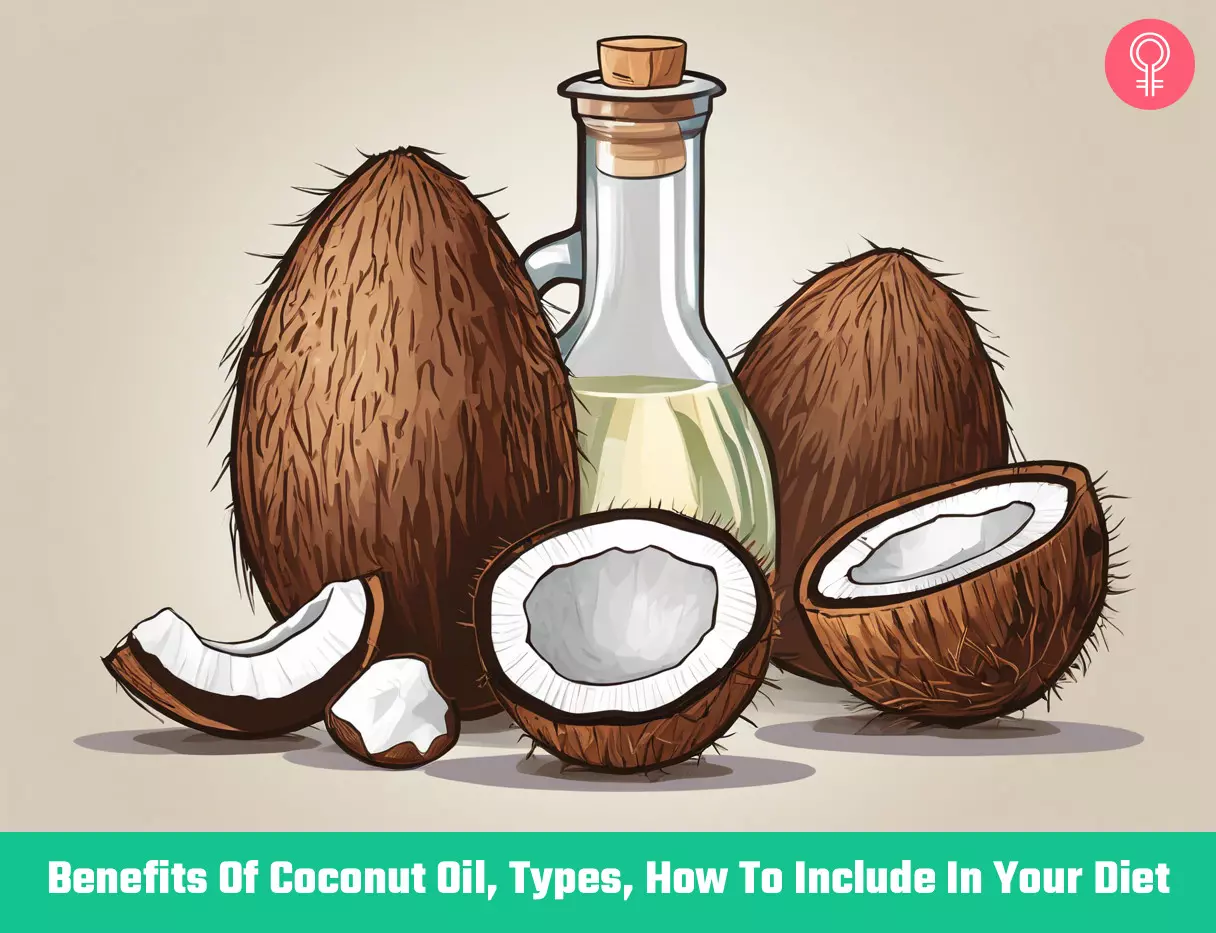
Image: Stable Diffusion/StyleCraze Design Team
Learn the top 3 benefits and uses of coconut oil. Check out the video given below to discover how this natural oil can help improve your health and well-being.
Personal Experience: Source
StyleCraze's articles are interwoven with authentic personal narratives that provide depth and resonance to our content. Below are the sources of the personal accounts referenced in this article.
i. Why Coconut Oil Is My Best Friendhttps://friendsonabudget.wordpress.com/tag/parachute-coconut-oil/
References
Articles on StyleCraze are backed by verified information from peer-reviewed and academic research papers, reputed organizations, research institutions, and medical associations to ensure accuracy and relevance. Read our editorial policy to learn more.
- Coconut oil consumption and cardiovascular risk factors in humans
https://www.ncbi.nlm.nih.gov/pmc/articles/PMC4892314/ - Coconuts and Health: Different Chain Lengths of Saturated Fats Require Different Consideration
https://www.ncbi.nlm.nih.gov/pmc/articles/PMC7766932/ - Coconut oil: What do we really know about it so far?
https://www.researchgate.net/publication/332565821_Coconut_oil_What_do_we_really_know_about_it_so_far - Effects of feeding lauric acid or coconut oil on ruminal protozoa numbers, fermentation pattern, digestion, omasal nutrient flow, and milk production in dairy cows
https://pubmed.ncbi.nlm.nih.gov/24931520/ - A coconut oil-rich meal does not enhance thermogenesis compared to corn oil in a randomized trial in obese adolescents
https://www.ncbi.nlm.nih.gov/pmc/articles/PMC5531289/ - Medium Chain Triglyceride Oil Consumption as Part of a Weight Loss Diet Does Not Lead to an Adverse Metabolic Profile When Compared to Olive Oil
https://www.ncbi.nlm.nih.gov/pmc/articles/PMC2874191/ - Weight-loss diet that includes consumption of medium-chain triacylglycerol oil leads to a greater rate of weight and fat mass loss than does olive oil
https://pubmed.ncbi.nlm.nih.gov/18326600/ - Antibacterial study of the medium chain fatty acids and their 1-monoglycerides: individual effects and synergistic relationships
https://pubmed.ncbi.nlm.nih.gov/19469285/ - Effects of Dietary Coconut Oil as a Medium-chain Fatty Acid Source on Performance, Carcass Composition and Serum Lipids in Male Broilers
https://www.ncbi.nlm.nih.gov/pmc/articles/PMC4283167/ - The Glucose-Lowering Effects of Coconut Oil: A Case Report and Review of the Literature
https://www.ncbi.nlm.nih.gov/pmc/articles/PMC7781718/ - Effect of saturated fatty acid-rich dietary vegetable oils on lipid profile, antioxidant enzymes and glucose tolerance in diabetic rats
https://www.ncbi.nlm.nih.gov/pmc/articles/PMC2937313/ - Medium-chain triglyceride (MCT) ketogenic therapy
https://pubmed.ncbi.nlm.nih.gov/19049583/ - Effects of Ketone Bodies on Brain Metabolism and Function in Neurodegenerative Diseases
https://www.ncbi.nlm.nih.gov/pmc/articles/PMC7699472/ - Biochemistry, Ketogenesis
https://www.ncbi.nlm.nih.gov/books/NBK493179/ - Glucose and Ketone Metabolism in the Aging Brain: Implications for Therapeutic Strategies to Delay the Progression of Alzheimer’s Disease
https://academic.oup.com/book/29504/chapter/247647823 - HDL and Cardiovascular Risk
https://www.ncbi.nlm.nih.gov/pmc/articles/PMC3617479/ - Daily Consumption of Virgin Coconut Oil Increases High-Density Lipoprotein Cholesterol Levels in Healthy Volunteers: A Randomized Crossover Trial
https://www.ncbi.nlm.nih.gov/pmc/articles/PMC5745680/ - Effects of dietary coconut oil on the biochemical and anthropometric profiles of women presenting abdominal obesity
https://pubmed.ncbi.nlm.nih.gov/19437058/ - Beneficial effects of virgin coconut oil on lipid parameters and in vitro LDL oxidation
https://pubmed.ncbi.nlm.nih.gov/15329324/ - Apparent absence of stroke and ischaemic heart disease in a traditional Melanesian island: a clinical study in Kitava
https://pubmed.ncbi.nlm.nih.gov/8450295/ - Cholesterol, coconuts, and diet on Polynesian atolls: a natural experiment: the Pukapuka and Tokelau Island studies
https://academic.oup.com/ajcn/article-abstract/34/8/1552/4812510 - Fatty Acids and Derivatives as Antimicrobial Agents
https://www.ncbi.nlm.nih.gov/pmc/articles/PMC444260/ - Equivalence of lauric acid and glycerol monolaurate as inhibitors of signal transduction in Staphylococcus aureus
https://pubmed.ncbi.nlm.nih.gov/10762277/ - In vitro antimicrobial properties of coconut oil on Candida species in Ibadan, Nigeria
https://pubmed.ncbi.nlm.nih.gov/17651080/ - Antibacterial actions of fatty acids and monoglycerides against Helicobacter pylori
https://pubmed.ncbi.nlm.nih.gov/12727360/ - Protective effect of myristic acid on renal necrosis occurring in rats fed a methyl-deficient diet
https://pubmed.ncbi.nlm.nih.gov/10743677/ - Protective effect of coconut oil on renal necrosis occurring in rats fed a methyl-deficient diet
https://pubmed.ncbi.nlm.nih.gov/8570865/ - Anti-Aging Effects of a Serum Based on Coconut Oil Combined with Deer Antler Stem Cell Extract on a Mouse Model of Skin Aging
https://www.ncbi.nlm.nih.gov/pmc/articles/PMC8870445/ - Medicinal benefit of coconut oil
https://www.researchgate.net/publication/268805677_Medicinal_benefit_of_coconut_oil - The effect of oil pulling with coconut oil to improve dental hygiene and oral health: A systematic review
https://www.ncbi.nlm.nih.gov/pmc/articles/PMC7475120/ - Coconut oil and palm oil’s role in nutrition, health and national development: A review
https://www.ncbi.nlm.nih.gov/pmc/articles/PMC5044790/ - Lauric Acid Is a Potent Biological Control Agent That Damages the Cell Membrane of Phytophthora sojae
https://www.ncbi.nlm.nih.gov/pmc/articles/PMC8374439/ - Virgin Coconut Oil Supplementation Prevents Bone Loss in Osteoporosis Rat Model
https://www.ncbi.nlm.nih.gov/pmc/articles/PMC3457741/ - A nutritional approach for managing Irritable Bowel Syndrome
https://www.ncbi.nlm.nih.gov/pmc/articles/PMC5777282/ - Effect of mineral oil, sunflower oil, and coconut oil on prevention of hair damage
https://pubmed.ncbi.nlm.nih.gov/12715094/ - A randomized double-blind controlled trial comparing extra virgin coconut oil with mineral oil as a moisturizer for mild to moderate xerosis
https://pubmed.ncbi.nlm.nih.gov/15724344/ - Potential of herbs in skin protection from ultraviolet radiation
https://pubmed.ncbi.nlm.nih.gov/22279374/ - In vitro sun protection factor determination of herbal oils used in cosmetics
https://www.ncbi.nlm.nih.gov/pmc/articles/PMC3140123/ - Antioxidant capacity and phenolic acids of virgin coconut oil
https://pubmed.ncbi.nlm.nih.gov/19115123/ - The negative effects of hydrogenated trans fats and what to do about them
https://pubmed.ncbi.nlm.nih.gov/19345947/ - Effect of oil pulling on Streptococcus mutans count in plaque and saliva using Dentocult SM Strip mutans test: a randomized, controlled triple-blind study
https://pubmed.ncbi.nlm.nih.gov/18408265/ - Effect of coconut oil in plaque related gingivitis — A preliminary report
https://www.ncbi.nlm.nih.gov/pmc/articles/PMC4382606/ - Meta-analysis of prospective cohort studies evaluating the association of saturated fat with cardiovascular disease
https://pubmed.ncbi.nlm.nih.gov/20071648/ - Dietary fats and health: dietary recommendations in the context of scientific evidence
https://pubmed.ncbi.nlm.nih.gov/23674795/ - Dietary intake of saturated fatty acids and mortality from cardiovascular disease in Japanese: the Japan Collaborative Cohort Study for Evaluation of Cancer Risk (JACC) Study
https://academic.oup.com/ajcn/article/92/4/759/4597506
Read full bio of Dr. Zeel Gandhi
Read full bio of Ravi Teja Tadimalla
Read full bio of Arshiya Syeda
Read full bio of Aparna Mallampalli





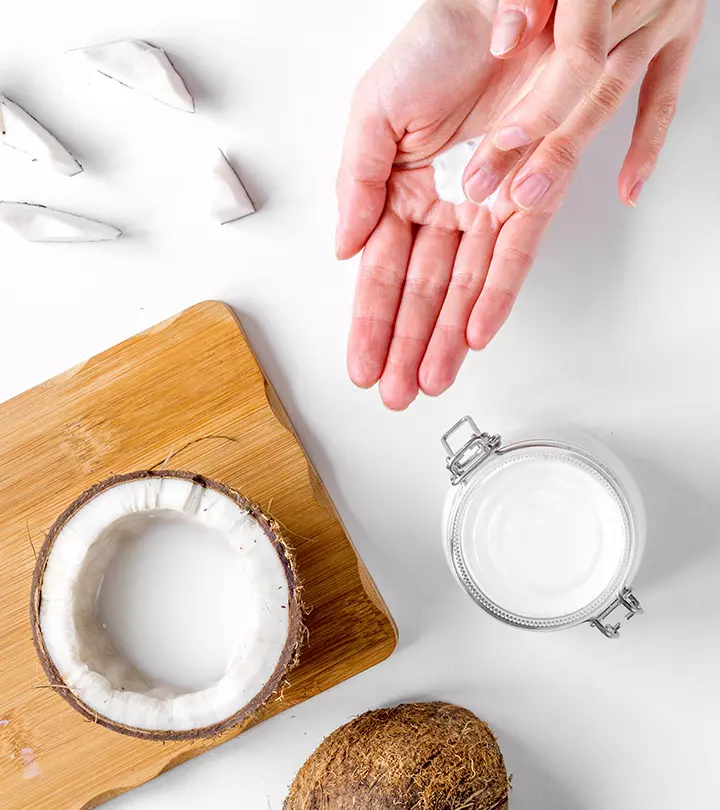
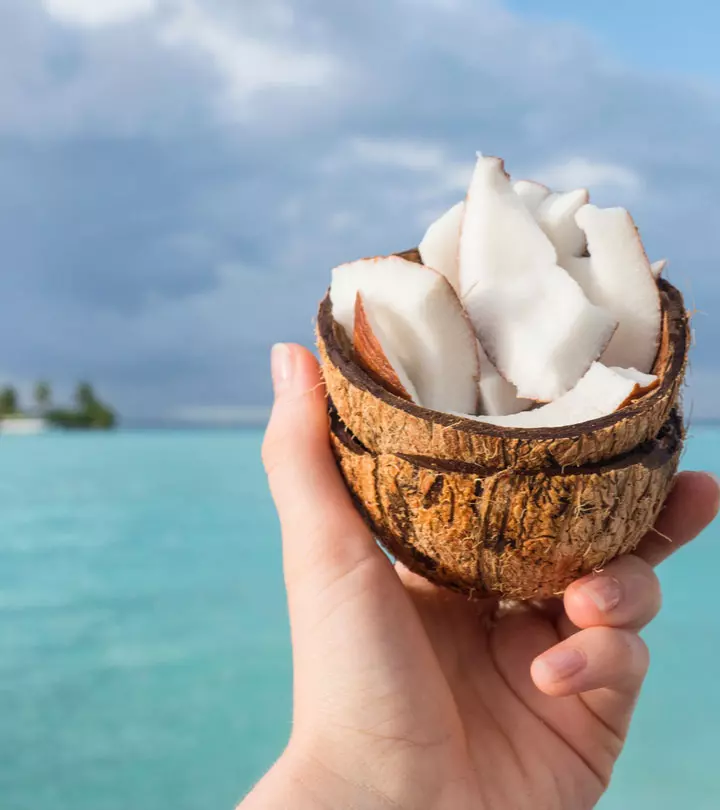

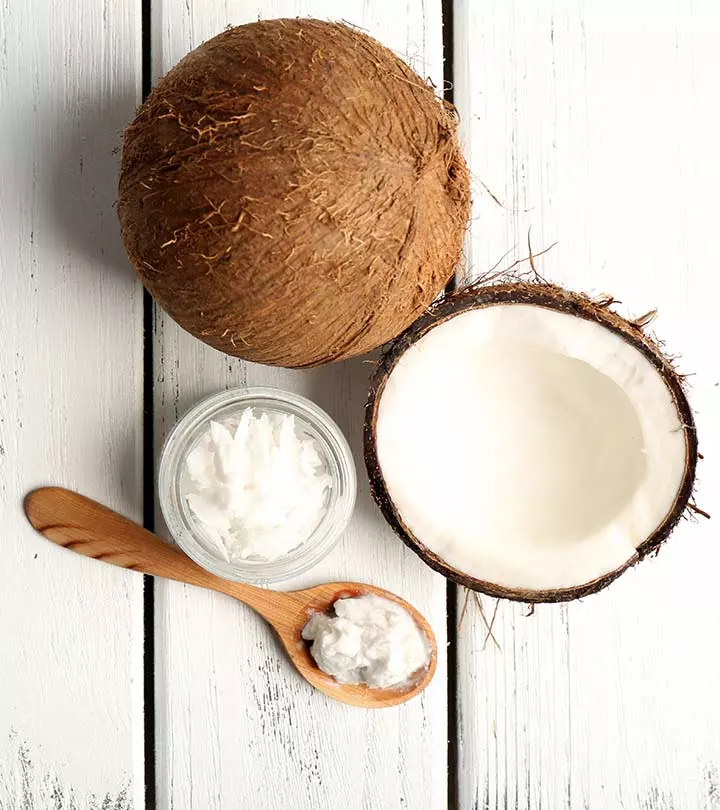

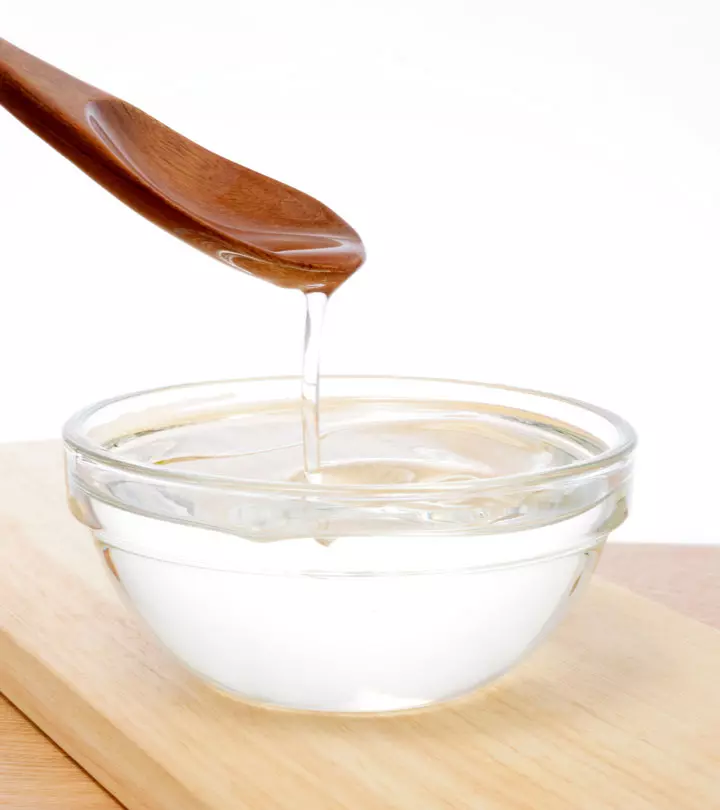
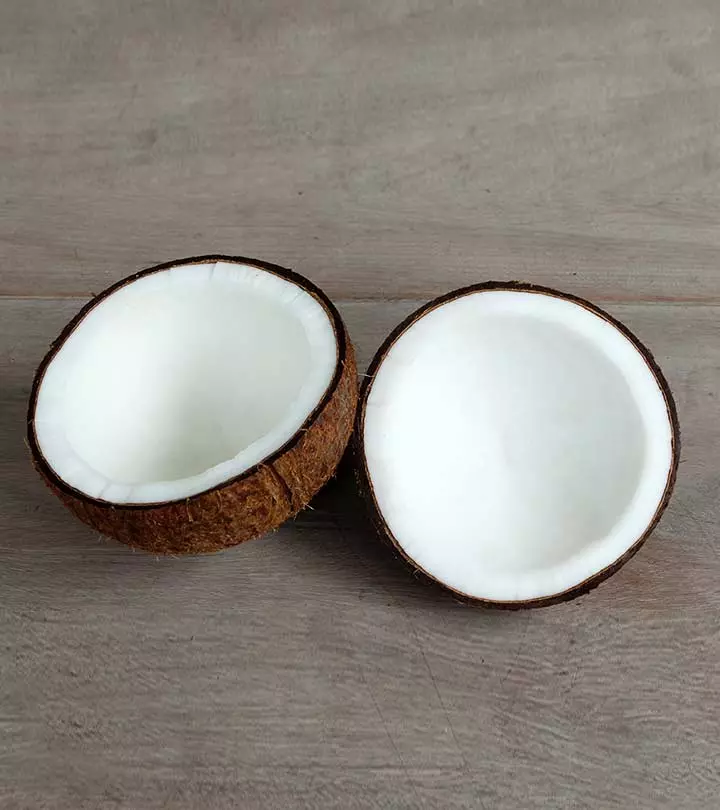


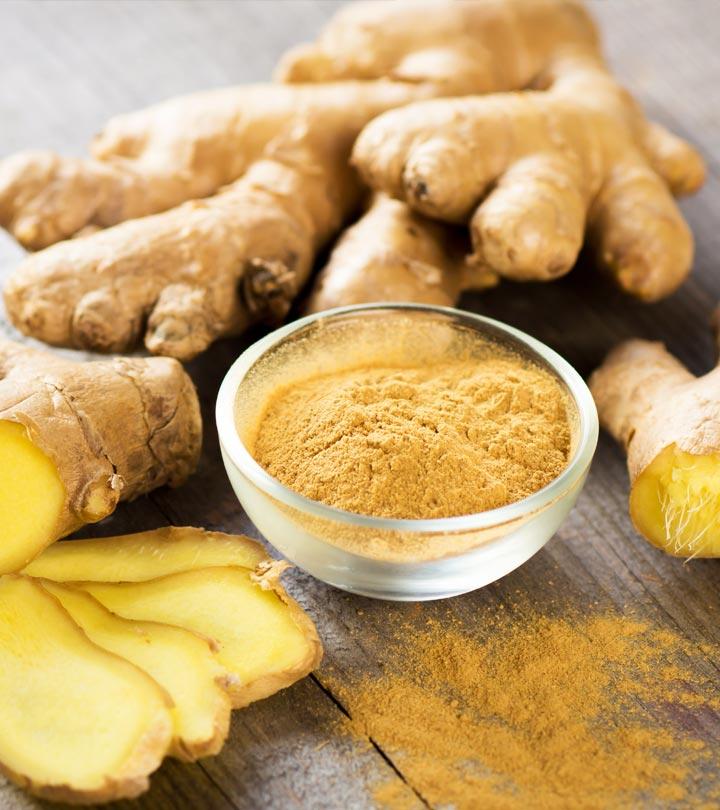


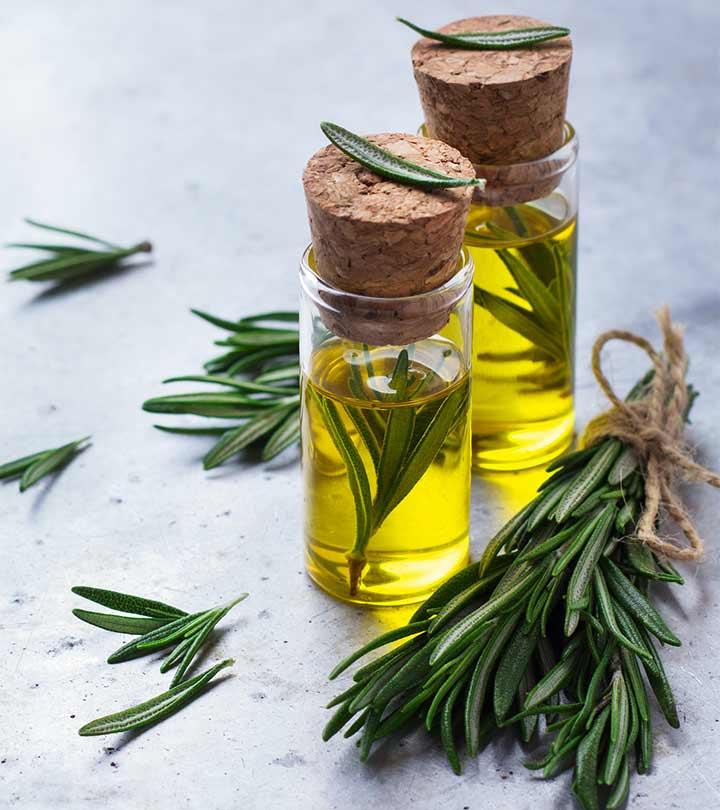

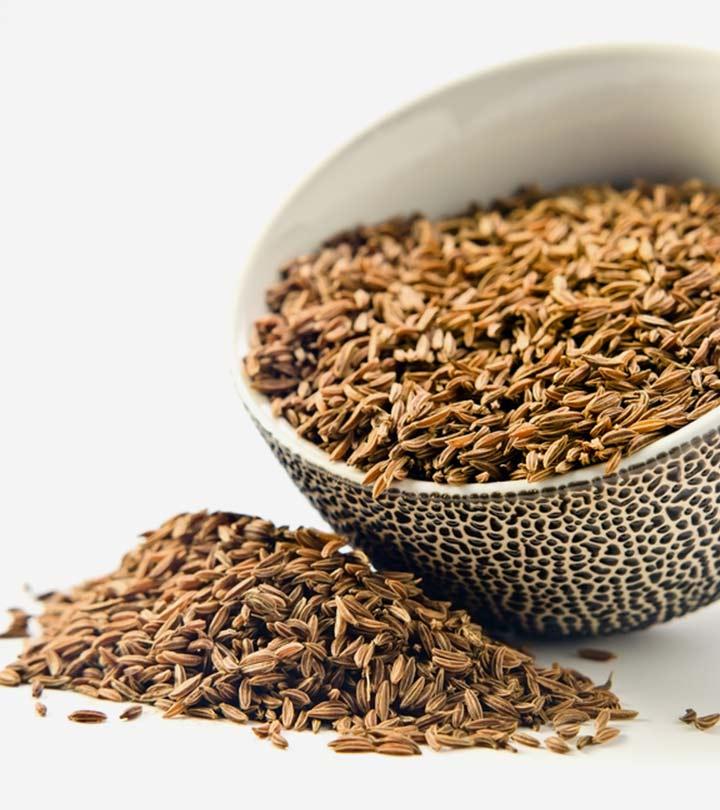



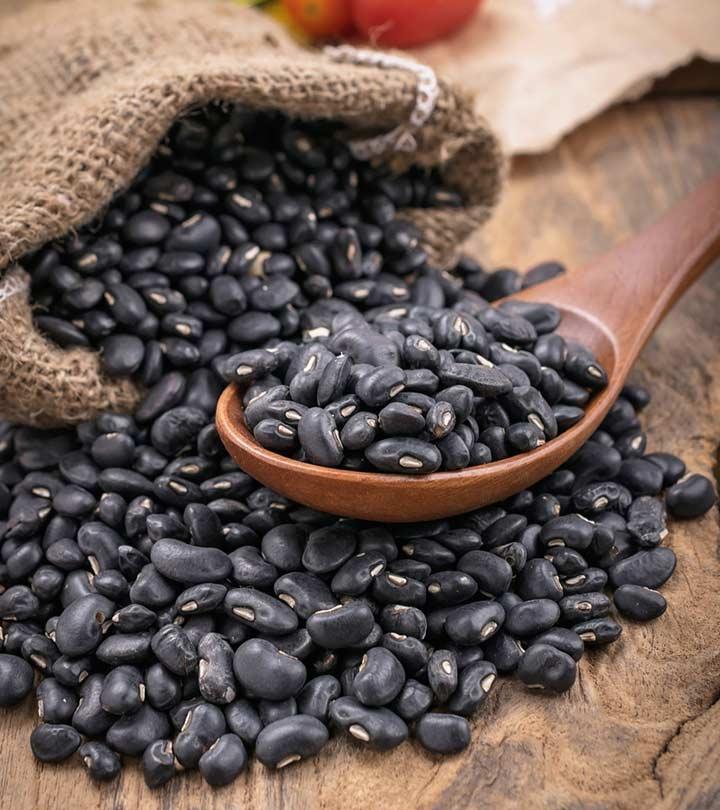
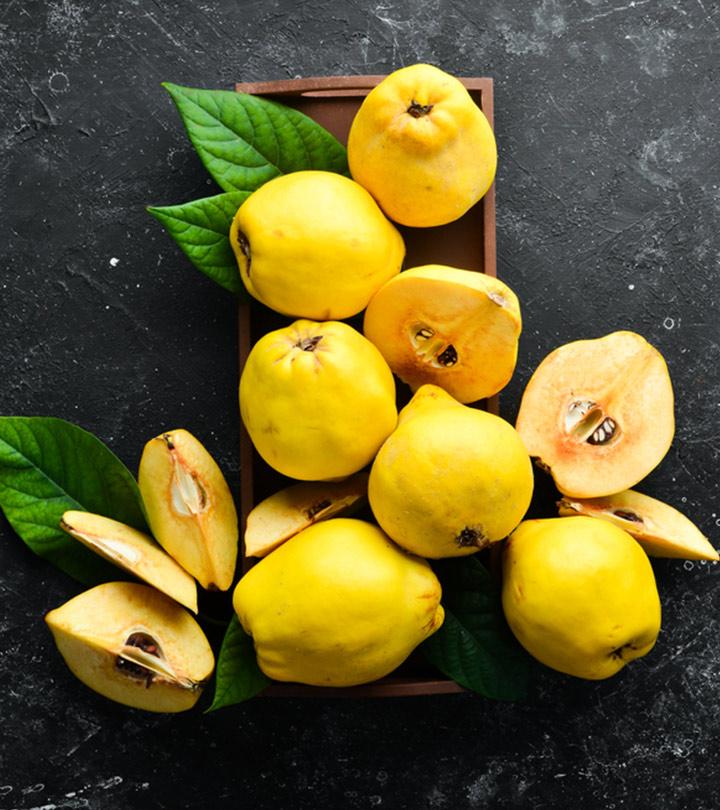

Community Experiences
Join the conversation and become a part of our empowering community! Share your stories, experiences, and insights to connect with other beauty, lifestyle, and health enthusiasts.